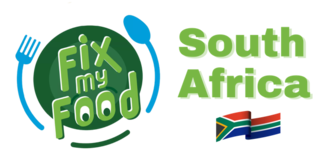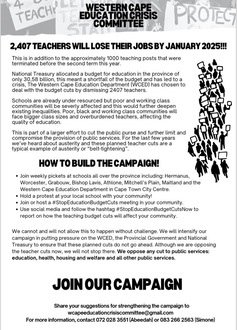- Featured
- Clean air
- Climate justice
- Consumer Rights
- Corporate Accountability
- Data access
- Early Childhood Development
- Economic fairness
- Education
- Electoral fairness
- Environmental justice
- Food justice
- Gender based violence
- Grants/social assistance
- Health
- Housing and infrastructure
- Industry interference
- Land Justice
- LGBTQIA+ rights
- Media/ information access
- Public transport
- Racism
- Reparations
- Safety
- Sanitation
- Service Delivery
- Sexual and Reproductive Rights
- Social justice
- Unemployment
- Womxn's rights/ gender equality
- Workers' rights
- More
-
Joburg City Theatre Change of ManagementThe importance of showcasing genuine African productions cannot be overstated. These performances offer critical insights into our histories, struggles, and triumphs, fostering a sense of belonging and pride within our community. By prioritizing these works, Joburg Theatre could play a pivotal role in upholding its slogan and nurturing young talent, promoting cultural education, and attracting diverse audiences, ultimately benefiting the broader community economically and socially. • There a no shows who have made it out of the youth development stage into main stage arena through JCT support & funding • There no festivals on the main stage highlighting new African authentic voices or new festivals uplifting and promoting new playwrights/producers • No capacity for African works to cult main stage other than those directed by the artists director • Lack of opportunities for African professionals to participate in the main stage arena We call for immediate action to address these issues by advocating for a management team that is committed to inclusivity, transparency, and the promotion of authentic African productions. We urge the theatre's board to consider the long-term benefits of supporting local creators and engaging with our community in meaningful ways. We appreciate your attention to this urgent matter and hope to see proactive steps taken towards creating a more equitable and representative cultural space at Joburg Theatre.143 of 200 Signatures
-
Fix the issues at the Dan Tloome Randfontein Housing Project"We are not safe,as every time it rains, the roofs get blown away. There are leaks in the ceilings, and the stair rails are not even stable," said a concerned resident. References [1] Dan Tloome Housing Project in the spotlight again by Dominic Duvenage for the Randfotein Herald. 18 January 2024. https://www.citizen.co.za/randfontein-herald/news-headlines/local-news/2024/01/18/dan-tloome-housing-project-in-the-spotlight-yet-again/ [2] Neglected Dan Tloome Mega Housing Project Residents Suffer A Severe Lack of Service Delivery. 21 September 2023. https://dagauteng.org.za/2023/09/neglected-dan-tloome-mega-housing-project-residents-suffer-a-severe-lack-of-service-delivery188 of 200 Signatures
-
Open libraries on SaturdaysIn October 2023, the City of Ekurhuleni opened selected libraries every Saturday to help students during exam season. While this was a great move, opening libraries for four extra Saturdays, each for only five hours, is not enough. Learners need consistent access to library resources to support their learning throughout the year, especially since many learners in townships face harsh conditions at home that are not conducive to effective studying. In townships, low-income families live in one-room rentals where everyone is trying to go about their day—cooking, watching TV, and making noise. This makes it hard for learners to focus on their homework and study [1]. The distractions don’t stop there. With neighbours running businesses from their yards and pavement, and the constant noise of taxis and weekend parties, studying can feel nearly impossible [1]. Libraries serve as safe spaces where learners study away from turbulent homes and townships [2]. As Lunga Nqadolo from The Bookery points out, “Libraries are not just about books; they’re also spaces for kids to do homework and join reading groups and other activities. This early exposure helps them succeed in school” [3]. Libraries provide students access to a wide range of books, reference materials, research databases, and online resources [4]. After reading rates among Grade 4 learners dropped by at least 18% following the COVID-19 pandemic [5], it’s clear that we need to do more to support learning outside the classroom. The Department of Basic Education is using its R48.7 million education infrastructure budget to build new schools and fix infrastructure [3], public libraries must also step up and provide more resources and study spaces for students. Our kids’ futures depend on it. Let’s push the Mayor of Ekurhuleni and the Divisional Head of Libraries and Information Services to open libraries on Saturdays and extend their hours to 4 PM. Our students deserve this support—let’s work together to make it happen! You can find a list of libraries within the City of Ekurhuleni and their closing and opening times here: https://www.ekurhuleni.gov.za/for-me/services/libraries/?fbclid=IwY2xjawHt0BBleHRuA2FlbQIxMAABHdXHsihpEH_hdAjBcYGJLnKS1iylL8TcPpSJJ0FHsCeFG6E9wU4C0aNXyA_aem_sT6cDA7HPRKHiYXf6FVhHQ References [1] Assisting Grade 12 learners in township schools to perform optimally: A case study in the Tshwane South District of Gauteng Province, Mahlatini Mbuyisa for Unisa, November 2016. [2] A library changed my life, William Gumede for University of Witswatersrand, 9 March 2021. [3] The Education Minister promised all schools would have a library by 29 November - but there’s no chance that deadline will be met, Sonia A. Rao for GroundUp, 21 September 2021. [4] Assessing the Correlation Between School Resource Utilization and Learners’ Success in South African Public Education: A Case of Limpopo Province, Mmbengeni Victor NetshidzivhanI for International Journal of Social Science Research and Review, January 2024. [5] Background Report for the 2030 Reading Panel, Nic Spaull, 2023.112 of 200 SignaturesCreated by Aphelele Mkhangwana
-
Stop with the corporatization of Home AffairsPublic services should work for everyone; the planned proposals to launch a premium service allowing people to pay extra to fast-track their document applications [4] should be cancelled. On top of planning to digitize the department, introducing things such as “premium services” should be vehemently rejected having the ability to pay for a public service, such as fast-tracking an application, trumps the idea of what a public service is. No one person should have the right to use money to get “better” service delivery over those without money. The department has to focus on making its services efficient and accessible for everyone. In a country like ours, where disparities between those with access and those who don't still persist, it is counterproductive to implement measures such as public e-services while the digital divide still persists where only one-third of the country’s population has access to smartphone [5]. In addition to poor IT infrastructure riddled by breakdowns, inefficiencies, and the famous “system is offline,” how will this be mitigated on the digitised platform? Add your name to the petition to get the Department of Home Affairs to do away with the idea of offering premium services. We all deserve decent service delivery. References [1] Home Affairs planning fast-tracked premium service by Jan Vermeulen for MyBroadband. 04 November 2024. https://mybroadband.co.za/news/security/568090-home-affairs-planning-fast-tracked-premium-service.html [2] Government must protect legitimate SRD grant applicants, say activists by Marecia Damons for GroundUp. 28 October 2024. https://groundup.org.za/article/government-must-protect-genuine-srd-grant-applicants-say-activists/ [3] UIF looks to updated databases to strengthen payment controls by Simnikiwe Mzekandaba for ITweb. 14 September 2020. https://www.itweb.co.za/article/uif-looks-to-updated-databases-to-strengthen-payment-controls/6GxRKqYJlg6vb3Wj [4] Home Affairs planning fast-tracked premium service by Jan Vermeulen for MyBroadband. 04 November 2024. https://mybroadband.co.za/news/security/568090-home-affairs-planning-fast-tracked-premium-service.html [5] Number of smartphone users in South Africa from 2014 to 2023 (in millions) by Petroc Taylor. 18 January 2023. https://www.statista.com/statistics/488376/forecast-of-smartphone-users-in-south-africa/1 of 100 SignaturesCreated by Thabisile Miya

-
Demand Justice for Listeriosis Victims: #TigerBrandsMustPayOf the approximately 1,000 confirmed cases of listeriosis associated with this outbreak, at least 465 were pregnant women who suffered miscarriages, stillbirths or gave birth to children who contracted listeriosis in their mother’s womb. Most of the children born with listeriosis suffer from developmental delays and face lifetime health complications, including hydrocephalus, which is the build-up of fluid in the brain that leads to severe pain and progressive brain damage. As the majority of these children come from low to middle-income Black families who cannot afford the support required for special needs children, these children are suffering each day without the help that they desperately need. Despite overwhelming evidence, and over six years since the National Institute of Communicable Diseases (NICD) linked Tiger Brands to the outbreak, Tiger Brands has failed to take accountability for the harm they caused, prolonging the suffering of their customers, the children born with listeriosis, the mothers who lost children and the families devastated by the outbreak. Tiger Brands insurers, likewise, remain unaccountable. Stalker Hutchison Admiral (SHA Risk Specialists) – owned by one of South Africa’s largest insurers, Santam, a subsidiary of Sanlam – and the QBE Insurance Group continue to delay a settlement. Rather, these insurers are profiting from the funds held to compensate the affected families. https://youtu.be/-MSoetLWE5U?si=BmtDFKlpf2fdjIPc1,362 of 2,000 SignaturesCreated by Listeriosis Families Support Campaign
-
Demand Vhembe district municipality to provide water tanks for residentsResidents of Tshifudi Tshikombele village in Venda Limpopo have reported that over the years, they have been experiencing extreme water scarcity. Ground up, an online newspaper reported that the village has a few water taps; however, these taps only receive water once a month when the water from a local dam is supplied. However, the community shared its concerns over this water supply from the dam, with many claiming that the water from the dam is not safe for consumption. As a result, “ Most residents have been collecting water from a river where they also wash their clothes and send cattle to graze and drink” [1]. Facing uncertainty and not being able to afford water; a local Tshifudi Tshikombele resident has even resorted to digging his own water well in order to access underground water for him and his community. “Tired of sharing water with animals, Dzebu took a pick, shovel, and hammer, and selected a spot where he believed underground water might be found. He spent three months digging the deep hole. Each time using a long rope to climb in and out of the well, with some help from his sister and mother” [2]. Residents from Magangeni village in Elim, another village under the Vhembe district municipality, have also resorted to digging their own water wells. They state that because of water scarcity and being unable to afford water from local vendors that own private boreholes, they resorted to digging a well. This problem has been going on for the past 20 years in most of these communities. “Residents said a borehole drilled by the municipality stopped working after cables and the pump were stolen 20 years ago. Then, four years ago, municipal workers installed new pipes and cables, but the borehole still isn’t functional” [3]. The municipality claims that theft and vandalism of the boreholes are a major problem[4]. They plan to upgrade water systems and repair non-functional boreholes [5]. The Vhembe district municipality is proposing a long-term solution that will take years to implement. The municipality is not taking people's lives into consideration. The people in the district need clean and usable water now. We demand that the municipality provide water tanks daily to the community. This will help greatly because community members cannot afford to buy water from local vendors; having clean, usable water will prevent waterborne diseases such as cholera and typhoid. Having water tanks will also reduce the pressure on groundwater sources, which can become overdrawn in water-scarce regions, leading to long-term depletion and environmental degradation. References [1] Desperate Limpopo man digs well so his village doesn't have to share water with animals. By Thembi Siaga and Elmon Tshikhudo for GroundUp. 20 September 2024. https://groundup.org.za/article/desperate-limpopo-man-digs-well-so-his-village-doesnt-have-to-share-water-with-animals/ [2] https://groundup.org.za/article/desperate-limpopo-man-digs-well-so-his-village-doesnt-have-to-share-water-with-animals/ [3]https://groundup.org.za/article/women-in-magangeni-village-in-limpopo-dug-a-well-to-access-underground-water-amid-severe-shortages/ [4] Vhembe District Says Vandalism Is Contributing To Water Challenges. By Oratile Kekana for Capricorn FM. 12 September 2024. https://www.capricornfm.co.za/vhembe-district-says-vandalism-is-contributing-to-water-challenges/ [5]https://groundup.org.za/article/women-in-magangeni-village-in-limpopo-dug-a-well-to-access-underground-water-amid-severe-shortages/4 of 100 SignaturesCreated by Nomzamo Octavia NGCOBO
-
Proposed Amendments to the City’s Municipal Planning By-law: Comments for ECD CentresThe City of Cape Town has released 𝗱𝗿𝗮𝗳𝘁 𝗮𝗺𝗲𝗻𝗱𝗺𝗲𝗻𝘁𝘀 𝘁𝗼 𝘁𝗵𝗲𝗶𝗿 𝗠𝘂𝗻𝗶𝗰𝗶𝗽𝗮𝗹 𝗣𝗹𝗮𝗻𝗻𝗶𝗻𝗴 𝗕𝘆-𝗹𝗮𝘄 which include provisions around development and land use applicable to ECD centres. As you are aware, an ECD centre must have the necessary land use approval in place to comply with municipal by-laws and become registered as a partial care facility. The land use approval process is overly complicated, long and costly. The Centre for Early Childhood Development has been working the City of Cape Town and the Mayor’s office around local barriers to ECD centre registration and accessing the ECD subsidy. Through this the City of Cape Town has included provisions around development and land use applicable to ECD centres in these draft amendments. The proposed amendments can be found here: https://shorturl.at/vddk7 The memorandum explaining the amendments can be found here: https://shorturl.at/vTiTn There is 𝗮 𝗰𝗮𝗹𝗹 𝗳𝗼𝗿 𝗽𝘂𝗯𝗹𝗶𝗰 𝗰𝗼𝗺𝗺𝗲𝗻𝘁, and this is our opportunity to have our voices heard! We removed admin penalties for struggling ECD centres; let’s do it for land use approvals. 𝗗𝗲𝗮𝗱𝗹𝗶𝗻𝗲 𝗳𝗼𝗿 𝗰𝗼𝗺𝗺𝗲𝗻𝘁𝘀: Midnight on Friday 25 October 2024 You can submit your comments directly to the City of Cape Town here: https://shorturl.at/xYi1l, but to make things easier CECD has put together our comments (which you can read here: https://shorturl.at/Sy0XO) - which you can simply share by submitting the message on this petition. You can also personalise your comments in the text box, by simply editing the text. Your message will then be sent on to the Land Use Department at the City of Cape Town. By adding your voice, we can positively impact the lives of tens of thousands of young children in the City of Cape Town! We can do this! Let’s remove the unnecessary ECD centre registration barriers until the system supports our young children and the ECD sector!423 of 500 SignaturesCreated by Centre for Early Childhood Development
-
End the Double Standards: Ban Deadly Pesticides Already Banned in EuropeThe Double Standards Pesticides Campaign calls on the South African government to ban all HHPs that have already been banned in the EU. The Campaign is important because tens of thousands of South African farm workers are impacted by exposure to these HHPs as they are often forced to work in vineyards and orchards while pesticides are being sprayed, and without the necessary personal protective equipment (PPE). This has resulted in the health of many farm workers being adversely and irreversibly impacted, affecting their quality of life and ability to work. South African farm workers and dwellers need your support to exert pressure on Minister Steenhuisen to ban all HHPs already banned in the EU, in order to protect their health and wellbeing.3,352 of 4,000 SignaturesCreated by Women on Farms Project
-
Demand President Ramaphosa amends the GBVF Act Now!The NCGBVF Act, in its current form, does not adequately reflect the 2018 commitment to combat GBVF. The Act must be urgently reviewed, and its shortcomings must be addressed through a participatory process that involves all key stakeholders. While the recent enactment of the National Council on Gender-Based Violence and Femicide Act (NCGBVF Act) was intended to mark a significant step towards better leadership, coordination, and accountability in the fight against GBVF, it has unfortunately fallen short of its purpose. As it currently stands, the Act is grossly inadequate. References [1] President Cyril Ramaphosa signs into law National Council on Gender-Based Violence and Femicide Bill and National Prosecuting Authority Amendment Bill, 24 May 2024 https://www.youtube.com/watch?v=ouCS6gOqw0k1,137 of 2,000 Signatures
-
Young people support draft regulations to improve the food environmentThe introduction of FOPL and the restriction of the advertising of unhealthy foodstuffs to children will mark a significant achievement in promoting a healthier nation, and we are confident that these regulations will contribute to reducing the incidence of non-communicable diseases and their modifiable risk factors such as obesity which are linked to poor nutrition. Furthermore, we believe the implementation of these regulations would protect the health of millions of young South Africans by curbing the manipulative marketing tactics by the food industry which are targeted to lure in vulnerable groups like children into consuming unhealthy foodstuffs. We share the government’s vision of a South Africa where all citizens, regardless of their race, gender, or socio-economic background, have equal access to safe, nutritious food and are well-informed about what they are consuming. By implementing clear and accessible FOPLs, the government is taking a critical step toward ensuring that all South Africans can differentiate between healthy and unhealthy food products. This effort will not only protect vulnerable consumers but also foster a culture of transparency and accountability by the food industry. UNICEF South Africa, alongside other stakeholders, has consistently supported initiatives that safeguard the health of the youth, children, and vulnerable communities. The youth of South Africa echo this support and are hopeful that the finalisation and implementation of the R3337 regulations will soon become a reality. Thank you for your leadership and for considering our message of support. We look forward to the successful implementation of the R3337 regulations. Yours faithfully, The Youth of South Africa1,456 of 2,000 SignaturesCreated by Fix My Food South Africa
-
Western Cape Education Crisis Committee's Petition Against Teacher Job CutsWe cannot afford any cuts in our Education budget, in fact we, as the Western Cape Education Crisis Committee, want more money and resources to be allocated to ensure Free Good Quality Decolonized Education.3,076 of 4,000 SignaturesCreated by Jamie Rosengarten
-
Gauteng youth brigades demand answersBongani Mthembu who also worked as a teacher assistant shares his experiences “we started last year in February under the PYEI program, shared Bongani Mthembu, 34, one of the affected youth brigades. Our contracts ended in December, and we were called to Dobsonville Stadium by the Premier, who assured us that we would remain in contact until the National Government decided on our future. He never told us the contract would end. Some of us are working with kids and teachers who have welcomed us into their schools. We’ve formed bonds with the students and staff, and now we are being forced to leave, Mthembu added. Even my principal called me, saying it’s a heavy-duty since I’ve been gone.” Read more here: https://ekurhuleninews.co.za/affected-youth-brigade-raises-his-concern/ Last month a group of brigades took to the streets to make their demands known and to get the premier to address them. Watch here: https://youtu.be/ncnA-EtnEIw?si=wq3oJ-1hwKPRf-3s&t=39 Add your name to the petition to help us get answers from Panyaza Lesufi.2,272 of 3,000 Signatures
.png)
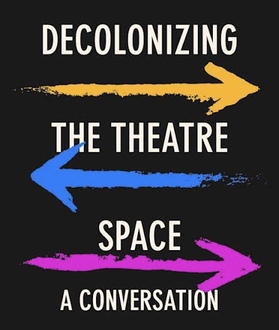
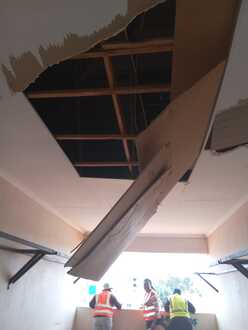
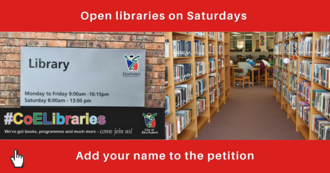


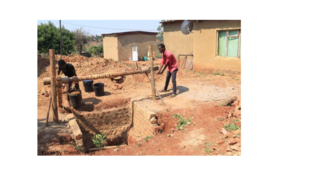.png)
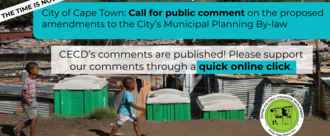
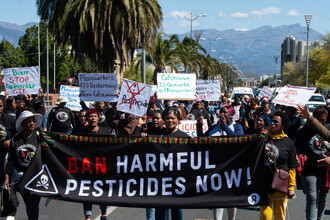
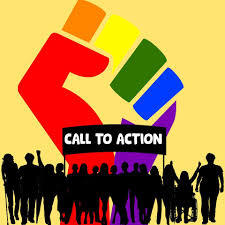.jpeg)
